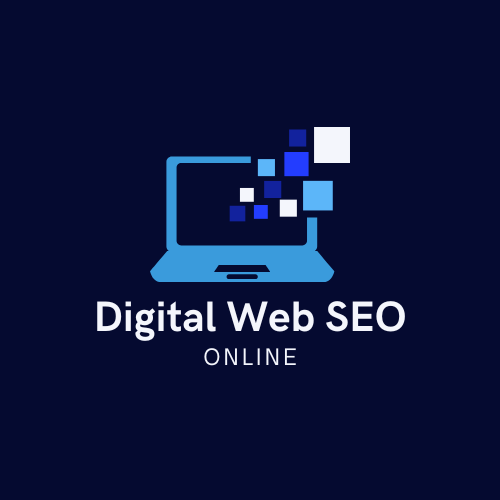Introduction
In today’s digital-first world, businesses must adapt to new ways of reaching their audience. Digital marketing has emerged as a crucial element of modern business strategy, enabling brands to engage customers, build relationships, and drive conversions online. Whether you’re an entrepreneur, business owner, or aspiring marketer, understanding the core principles of digital marketing is essential for success.
This comprehensive guide explores the key aspects of digital marketing, including its core strategies, essential skills, and real-world success stories. Whether you’re looking to refine your marketing efforts or start fresh, this article will provide valuable insights to help you navigate the dynamic digital landscape.
Understanding the Role of a Digital Marketer
A digital marketer is responsible for leveraging online channels to promote products, services, or brands. Their goal is to create and implement strategies that increase brand awareness, generate leads, and drive sales through digital platforms.
Core Responsibilities of a Digital Marketer
-
Developing Digital Marketing Strategies – Crafting data-driven plans that align with business objectives.
-
Content Creation and Management – Producing high-quality content such as blog posts, videos, infographics, and social media updates.
-
Search Engine Optimization (SEO) – Enhancing website visibility on search engines to increase organic traffic.
-
Pay-Per-Click (PPC) Advertising – Running targeted ad campaigns on platforms like Google Ads and Facebook Ads.
-
Social Media Marketing – Managing social media profiles and engaging with audiences to build brand loyalty.
-
Email Marketing – Creating personalized email campaigns to nurture leads and maintain customer relationships.
-
Data Analysis and Performance Tracking – Monitoring key performance indicators (KPIs) to optimize marketing efforts.
Essential Skills for Digital Marketers
To thrive in the field of digital marketing, professionals must master a combination of creative, analytical, and technical skills.
1. Analytical Thinking
Understanding customer behavior, analyzing data trends, and making data-driven decisions are crucial for optimizing marketing strategies.
2. Creativity
Crafting compelling content and designing visually appealing campaigns help capture and retain audience attention.
3. Technical Proficiency
Familiarity with SEO, website development basics, and marketing automation tools is essential for campaign execution.
4. Communication Skills
Clear and persuasive messaging is necessary for crafting effective advertisements, social media posts, and email campaigns.
5. Adaptability
The digital landscape is constantly evolving. Marketers must stay updated on emerging trends, platforms, and consumer preferences.
Key Digital Marketing Strategies and Best Practices
1. Content Marketing
High-quality content attracts and educates audiences, builds brand authority, and improves search engine rankings. Successful content marketing includes:
-
Blog posts that answer audience questions
-
Video content for social media engagement
-
Infographics that present complex information visually
-
Podcasts and webinars that offer industry insights
2. Search Engine Optimization (SEO)
SEO helps improve a website’s visibility on search engines. Effective SEO strategies include:
-
Keyword research to target relevant search queries
-
On-page optimization (meta tags, headers, and image alt text)
-
Link-building strategies to enhance website authority
-
Mobile optimization for better user experience
3. Social Media Marketing
With billions of active users, social media platforms offer powerful marketing opportunities. Best practices include:
-
Choosing the right platforms based on audience demographics
-
Posting consistently and engaging with followers
-
Using paid advertising to target specific audiences
-
Leveraging influencer partnerships for brand credibility
4. Pay-Per-Click (PPC) Advertising
PPC campaigns provide immediate visibility and drive targeted traffic. Key elements of successful PPC marketing:
-
Crafting compelling ad copy
-
Using audience segmentation for precise targeting
-
Running A/B tests to optimize performance
-
Monitoring and adjusting ad spend for maximum ROI
5. Email Marketing
Email marketing remains one of the most cost-effective digital strategies. Best practices include:
-
Personalizing emails based on user behavior
-
Crafting engaging subject lines and clear calls-to-action
-
Automating email sequences to nurture leads
-
Segmenting lists for better targeting
6. Mobile Optimization
Since most users access the internet via mobile devices, optimizing websites for mobile experience is crucial. This includes:
-
Responsive website design
-
Fast-loading pages
-
Mobile-friendly navigation
7. Data Analytics and Performance Tracking
Using tools like Google Analytics, marketers can measure campaign success and optimize strategies based on key insights. Metrics to track include:
-
Website traffic and engagement
-
Conversion rates
-
Customer retention and lifetime value
-
Social media interaction rates
Trends Shaping the Future of Digital Marketing
1. Artificial Intelligence (AI) and Automation
AI is revolutionizing digital marketing by enabling better customer targeting, chatbots for instant responses, and predictive analytics for campaign optimization.
2. Voice Search Optimization
With the rise of smart assistants like Alexa and Siri, optimizing content for voice search is becoming increasingly important.
3. Video Marketing Dominance
Short-form videos, live streams, and interactive videos continue to gain traction, making platforms like TikTok and YouTube essential for marketers.
4. Personalization and Customer-Centric Marketing
Consumers expect highly personalized experiences. Marketers must use data to tailor messages and recommendations to individual preferences.
5. The Rise of Influencer Marketing
Micro and nano influencers are proving to be more effective than celebrities in driving engagement and conversions.
Case Studies: Brands Excelling in Digital Marketing
1. Nike – Mastering Social Media and Branding
Nike’s digital marketing success comes from its compelling storytelling, athlete endorsements, and engaging content across multiple platforms. Their “Just Do It” campaigns continue to inspire and drive audience engagement.
2. Amazon – Data-Driven Personalization
Amazon’s use of AI-driven product recommendations and personalized shopping experiences keeps customers engaged and coming back for more.
3. Airbnb – User-Generated Content Strategy
Airbnb leverages user-generated content by encouraging guests to share their experiences, strengthening trust and brand loyalty.
Conclusion
Digital marketing is an ever-evolving field that requires a blend of creativity, analytical thinking, and adaptability. With the rise of new technologies, changing consumer behaviors, and increasing competition, staying updated with the latest trends and strategies is crucial for success.
By leveraging data-driven insights, optimizing for search engines, creating high-quality content, and engaging with audiences across multiple platforms, businesses and marketers can build strong digital presences and drive meaningful results. The key to long-term success lies in continuous learning, testing, and refining marketing efforts based on real-world performance.
Whether you’re an aspiring digital marketer or a seasoned professional, embracing innovation, focusing on customer needs, and maintaining a strategic approach will help you stay ahead in the competitive digital landscape.
Also Read: A Guide for Freshers on Digital Marketing Careers in 2025








